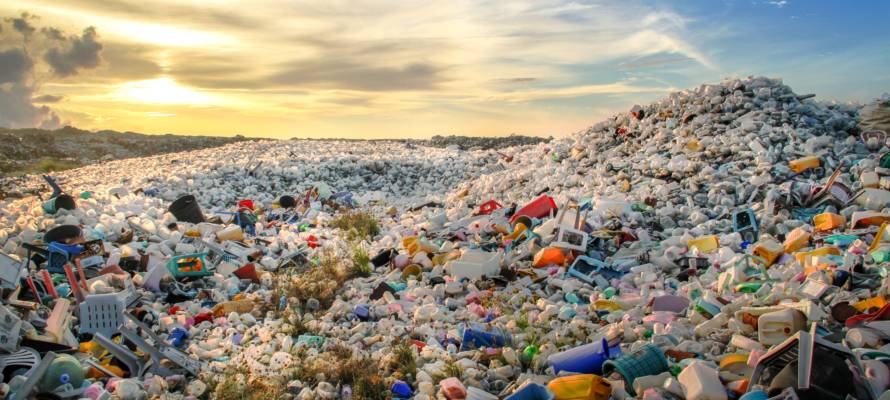Several new initiatives will keep Israel on the cutting edge of lessening environmental pollution.
By Tsivya Fox, United With Israel
As the world strives to prevent global warming through lessening man’s footprint on the environment, Israel has recently taken some solid steps to control pollution.
Both Herzliya, located in central Israel, and Eilat in the south have announced the banning of the use and sale of disposable plastic bags and plastic utensils on their beaches. Jerusalem is expanding it’s “clean air” zone to the entire city.
Ha’aretz reported that Herzliya Mayor Moshe Fadlon said that its reduction of plastic-use law is currently being drafted and will be presented to the city council within the year. The city plans to enforce the new law by placing city inspectors on its beaches. Violators will be fined.
This initiative is part of a wider plan by Herzliya to become a plastic-free zone, including in public areas and educational institutions.
Similarly, in an effort to protect Red Sea beaches and their unique coral reefs from the destructive effects of plastics, the Eilat city hall announced in late May that it is educating Eilat’s businesses on how to avoid the use of plastic. Eilat will not yet ban plastic water bottles. However, the city will try to discourage their use.
Once these programs are completed, Eilat will set into place local bylaws to enforce the ban on using disposables at the sea.
Raising Awareness
Additionally, campaigns are being launched to raise pollution awareness among residents and vacationers at this popular tourist spot.
Plastics not only destroy coral reefs, but also cause suffering and death to fish and other marine animals. The Environmental Protection Ministry found that plastics account for 90% of marine waste with at least 58 of the waste coming from beaches.
Israelis are now accustomed to carrying reusable bags when shopping as well as using standard cutlery and utensils instead of disposables.
In January 2017, Israel passed the “Bag Law,” where consumers are charged a fee of 10 agorot (about 2.8 cents) for each plastic bag they take from a store. The country’s Environmental Protection Ministry has claimed that this charge has brought an 80% reduction in the use of disposable bags.
The Jerusalem Municipality announced in early June its plan to expand its “clean air” law, which went into effect in December 2017. That law sought to limit the entry of highly polluting diesel vehicles into the city center.
Jerusalem’s City Council passed the modification of the law in order to reduce emissions throughout the entire Jerusalem area. The municipality is also updating its definition of a “polluting vehicle,” as defined by the national clean air regulation act from 2012.
Jerusalem Mayor Moshe Lion said about the passing of the extended law, “Transportation is one of the primary sources of air pollution in city centers and population centers. Pollution endangers the population and leads to an increase in morbidity rates. The updated plan will lead to improved health and life quality for the residents.”
‘Public Health Precedes Everything’
Before the new law was passed, there were signs delineated the specific restricted areas,but now all Jerusalem areas under municipality control will be protected from polluting vehicles.
Arye King, head of the Environmental Protection Municipality, said, “Public health precedes everything. The plan to reduce emissions from transportation is a significant component of our efforts to protect public health, while minimizing impact to daily life. All residents and visitors to Jerusalem will benefit from this,” The Jerusalem Post reported.
To that end, the Environmental Protection Ministry will give NIS 5 million towards reducing transportation-related pollution as well as NIS 5 million for the construction of nighttime parking lots for public transportation. Electric charging infrastructure will be put into place for buses in order to reduce pollution from gas exhaust.
Owners of polluting vehicles will receive assistance to install particle filters to reduce their environmental footprint, while others will receive subsidizes to scrap their old cars entirely.
Cameras will be installed in restricted areas to ensure enforcement of the new law.
Other measures to help keep Jerusalem clean and beautiful include expanding the Jerusalem Light Rail, restricting private vehicle access to the city center, adding bicycle lanes and places to park bicycles, and replacing standard streetlights and public building lighting with lights charged through solar energy.
With all of these initiatives, Israel will not only remain a holy and beautiful country, it will also become an environmentally friendly country.
Sign the Declaration to Keep Jerusalem United
Jerusalem Must Remain the United Capital of Israel
I declare that Jerusalem is the eternal capital of the Jewish People and support all efforts to maintain and strengthen a united Jerusalem as the undivided capital of the State of Israel.

